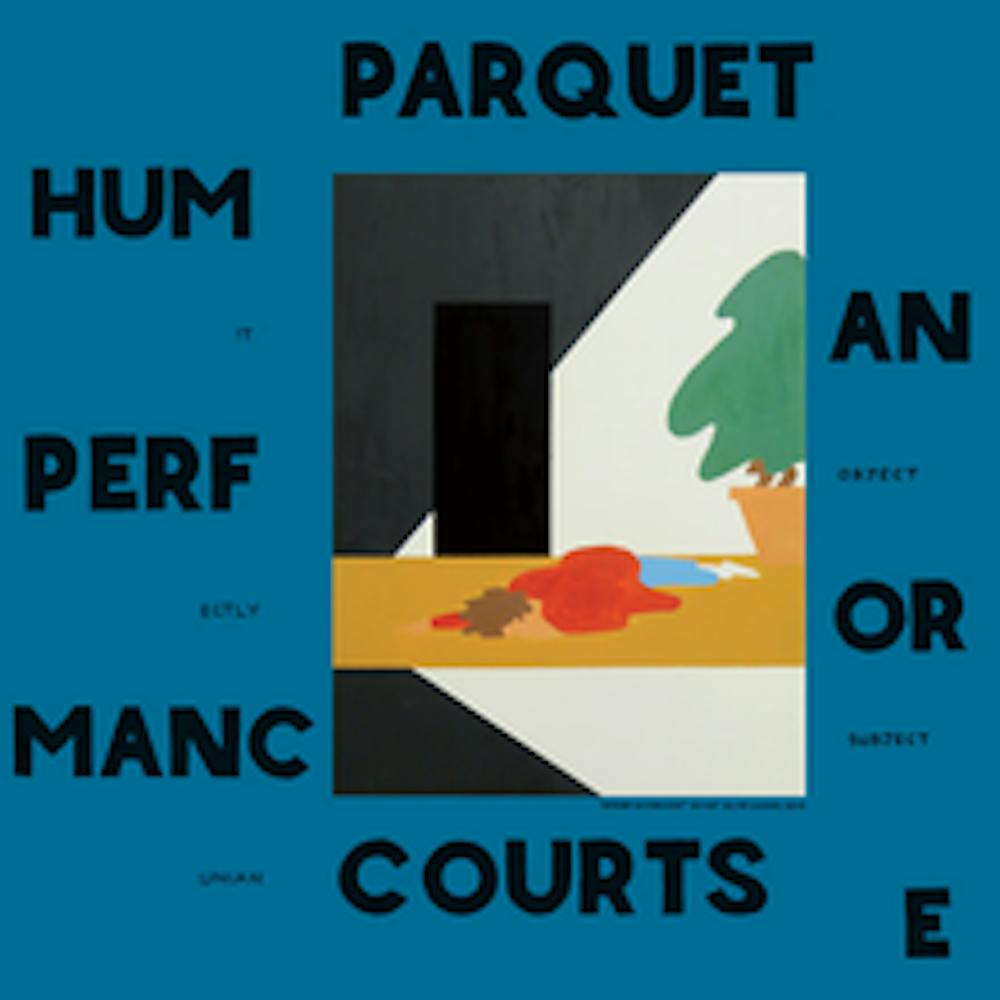Usually, Andrew Savage, Austin Brown, Sean Yeaton and Max Savage look like their music — or rather their music looks like them. They have shaggy hair and often sport disgruntled faces and flannel. This DIY rock look says something like, “We take ourselves and our art seriously.” Parquet Courts’s latest album however, should not be judged based on the band’s appearance.
They have yet to disappoint. In fact, each album has exceeded fans’ expectations. “Human Performance” isn’t an exception. This critically acclaimed band justifies their reputation and growing popularity with articulate, thought-provoking and smooth lyrics. It’s music for the average person, but at the same time, it pushes boundaries and explores artistry as much as any music lover could hope.
“Human Performance” cleverly picks up exactly where 2014’s “Content Nausea” left off. Their last LP is circular — it begins and ends with a theme similar to the intro, “Everyday It Starts.” “Dust,” the simple, rock riff-filled intro on “Human Performance,” begins with the lyrics, “the unavoidable noise of NYC that can be maddening / the kind of impossible struggle against clutter, whether it’s physical or mental or social.” The group stays loyal to a theme but stretches it a bit further.
“One Man, No City” continues along this tangent. The calming sound of chaos results in an upbeat, feel-good melody. Instrumentally, it showcases a variety of sounds to create the feeling of a lost man struggling to belong and realizing his struggle is an endless road.
“Berlin Got Blurry,” arguably the most relatable song on the album, tells the tale of a man wandering alone in a foreign country. “Cell phone service is not that expensive / But that takes commitment, and you just don’t have it / Feels so effortless to be a stranger / But feeling foreign is such a lonely habit.” The same ideas are strewn throughout the album with tracks such as, “I Was Just Here,” a song about struggling with the feeling of belonging at home. “Pathos Prairie” tackles feelings of disappointment and guilt with a dash of western swing.
Yet, the Savage brothers and their friends know better than to create a solely self-pitying album. It’s been done before. They also include some controversial politics with the bold, bass-filled “Two Dead Cops” — “Protect you is what they say / But point and shoot, is what they do / When shots are heard young lives are lost / Nobody cries in the ghetto for two dead cops.”
Parquet Courts creates incredibly accessible music by conveying anxiety and paranoia which somehow precipitates in indifference — one of the most paradoxical and yet common sentiments of our generation. The album is named for Savage’s feelings of being a “machine programmed to be human showing signs of defect.” He focuses on confinement and a haunting, internal isolation as a result of an absence of faith. While this is could certainly be a more astute, sensitive subject especially for the punk scene, it results in the most honest and convincing performance Parquet Courts has to date.





